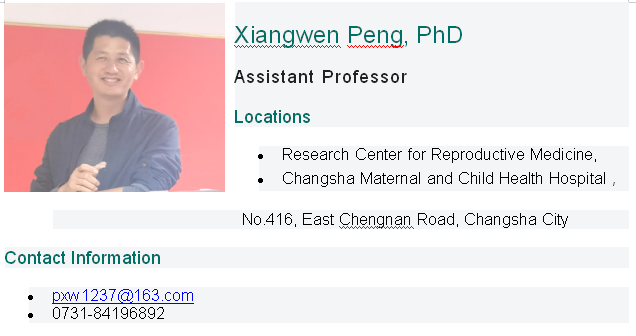
Education
Postdoctoral Fellowship, Medical College of Wisconsin, Milwaukee, WI, USA.
The University of North Carolina at Chapel Hill,Chapel Hill, NC, USA
PhD, Fudan University, Shanghai, China
Research Interests
Cellular and molecular mechanisms that govern heart regeneration
Heart failure remains the leading cause of death worldwide necessitating continued efforts to identify therapeutic strategies that will stimulate tissue regeneration and functional recovery after an insult, such as a heart attack. My lab seeks to understand the genetic, molecular and cellular processes that allow for endogenous heart cells, cardiomyocytes, to re-enter the cell cycle and regenerate lost cardiac muscle tissue.
1) Exploiting natural variation to understand the genetic mechanisms of heart regeneration.
From our original research, several additional candidates remain unexplored for their roles in heart regeneration. Using complementary techniques, including drug-based manipulations, viral delivery, and genetic animal models, we will explore the function of these additional candidates both in heart development and regeneration.
2) Characterizing the nature of MNDCMs and assessing their role in heart regeneration.
To date, MNDCMs remain an understudied and underappreciated cell type within the heart. This project will understand how they differ from the non-regeneration competent cells of the heart and to definitively test if they are the cell responsible for myocardial regeneration.
3) Of course, bring your own ideas!
We are actively recruiting trainees at all levels and welcome new ideas to transform the way we think about heart regeneration. If you are interested in joining or rotating in the Xiangwen Lab, please contact Xiangwen Peng, PhD at :pxw1237@163.com
Publications
1. Peng, X. 1. Peng, X., et al., Induction of Wnt signaling antagonists and p21-activated kinase enhances cardiomyocyte proliferation during zebrafish heart regeneration. J Mol Cell Biol, 2020.
2. She, P., et al., The Gridlock transcriptional repressor impedes vertebrate heart regeneration by restricting expression of lysine methyltransferase. Development, 2020. 147(18).
3. Xie, S., et al., Discovering small molecules as Wnt inhibitors that promote heart regeneration and injury repair. J Mol Cell Biol, 2020. 12(1): p. 42-54.
4. Peng, X., et al., Wnt2bb Induces Cardiomyocyte Proliferation in Zebrafish Hearts via the jnk1/c-jun/creb1 Pathway. Front Cell Dev Biol, 2020. 8: p. 323.
5. Zeng, Z., et al., Platelet-derived miR-223 promotes a phenotypic switch in arterial injury repair. J Clin Invest, 2019. 129(3): p. 1372-1386.
6. He, Q., et al., Genome-wide prediction of cancer driver genes based on SNP and cancer SNV data. Am J Cancer Res, 2014. 4(4): p. 394-410.
7. Peng, X., et al., Rac1-PAK2 pathway is essential for zebrafish heart regeneration. Biochem Biophys Res Commun, 2016. 472(4): p. 637-42.
Xiangwen Peng’s Lab members
Yanling Wang, Research Technician







